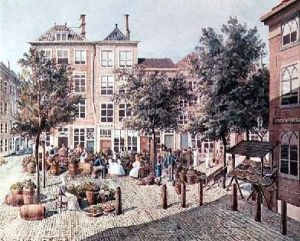Felix Bartholdy Mendelsohn Paintings
Jakob Ludwig Felix Mendelssohn Bartholdy, known as Felix Mendelssohn, was a German composer, pianist, organist, and conductor of the early Romantic period. Born on February 3, 1809, in Hamburg, into a prominent Jewish family, he was the grandson of the philosopher Moses Mendelssohn. His family moved to Berlin in 1811, where his musical talents were nurtured by the best teachers of the time, including Ludwig Berger (piano) and Carl Friedrich Zelter (composition), the latter having a significant influence on his development. Mendelssohn's early education was comprehensive, encompassing not only music but also languages, drawing, and other subjects, making him a well-rounded intellectual from a young age.
Mendelssohn's prodigious musical talent became evident early on, with his first public concert performance at the age of nine and his first published composition by the age of thirteen. His works from this period already showed remarkable maturity and skill, drawing comparisons to Mozart. One of his most famous early works, the Overture to 'A Midsummer Night's Dream', was written in 1826 when he was just 17. This piece later served as the opening to his full incidental music for the play, composed in 1842, which includes the well-known 'Wedding March'.
Throughout his life, Mendelssohn was a key figure in the early Romantic musical scene, known for his ability to blend the classical traditions of Mozart and Beethoven with new Romantic impulses. He was instrumental in reviving interest in the music of Johann Sebastian Bach, notably through his 1829 performance of the St. Matthew Passion, which had been largely forgotten by that time. Mendelssohn's own compositions include symphonies, concerti, piano music, chamber music, and choral works. His most celebrated pieces include the overture and incidental music for 'A Midsummer Night's Dream', the Italian and Scottish Symphonies, the 'Hebrides Overture', and the Violin Concerto in E minor.
Despite his success, Mendelssohn's career was marked by periods of depression, exacerbated by the demanding nature of his various roles and the loss of close family members. His health declined during the 1840s, and he died following a series of strokes on November 4, 1847, in Leipzig, at the age of 38. Mendelssohn's death was widely mourned, and his music remained influential, inspiring future generations of composers. His legacy as a composer, conductor, and musical organizer (including his role in the Leipzig Gewandhaus Orchestra and the Leipzig Conservatory, which he founded) cements his place as one of the seminal figures of the Romantic era in music.
